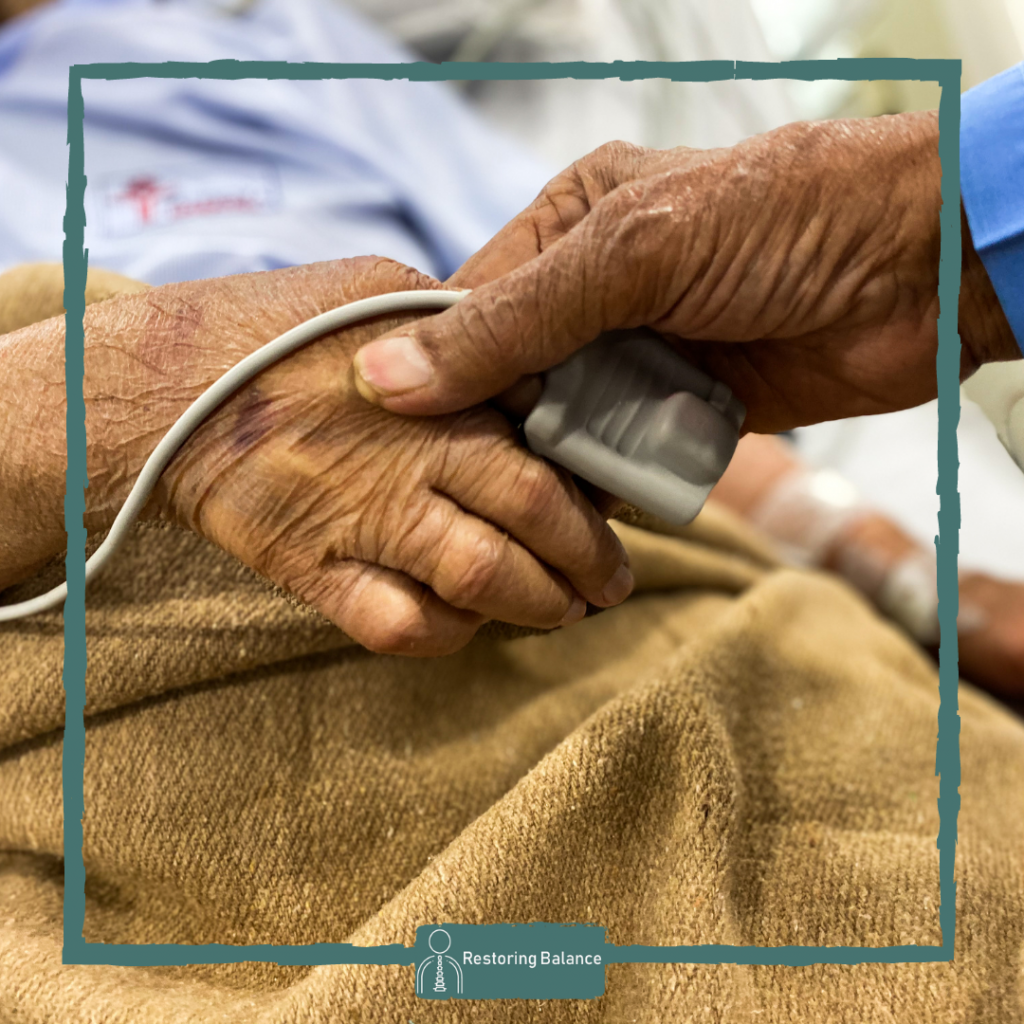I’ve touched on the personal challenges of becoming a carer on my social feeds during the year, but today has been a whole new challenge in trying to support my family.

Much of my work here in clinic includes emotional support, re-establishing the fundamentals of movement and the psychology of health and wellness, so literally every one of these skills and more come into play when you are a carer, the main difference is the emotional connection that you have with the person – whether it’s your parent, partner or child. You find a new strength and resilience that you never knew you had, and then it comes to the patience and advocacy of dealing with medical professionals and what is our fundamentally broken care system.
Humans by their very nature are creatures of habit, we are lovers of home comforts – they bring a sense of safety, familiarity and reassurance that all is well in our worlds, even more so when you’re struggling with your health and riding an emotional roller coaster at the same time.
I thought I’d take the opportunity to explore some of the feelings that both you and your loved one are likely to feel. Initially, a hospital stay is often associated with a sense of relief for all; knowing that they’ll be getting the care that they need; but also you have the opportunity for some respite. However, when your loved one finds themselves facing an unexpected extension of their hospitalisation, a myriad of emotions can overwhelm both of you.


Disappointment
One of the initial emotions that your loved one may encounter upon learning about a delayed discharge is an overwhelming sense of disappointment. They’ve mentally prepared themselves to leave the hospital, excited about the prospect of returning to their familiar surroundings and creature comforts. We all know how amazing the first night’s sleep is in your own bed when you’ve been away on holiday. When those expectations are shattered, it can be disheartening and frustrating. Even more so when the reasons are ones that are related to poor planning, logistics or something that’s not been previously identified during their stay in hospital.
Frustration and Impatience
Being away from your familiar surroundings is stressful. The hospital environment is often a whirlwind of sensory overload from constant noise, light and disruptions through being in a shared ward. As the hours and days pass by, frustration and impatience start to creep in, alongside a growing feeling of a loss of independence and self-advocacy.
It’s not unusual for your loved one to feel trapped in a cycle of uncertainty, wanting desperately to be discharged to regain their independence and self-advocacy. The hospital environment can become monotonous and confining.
Anxiety and Uncertainty
A prolonged hospital stay can trigger anxiety and a sense of uncertainty, you may see your loved one starting to worry about the impact of their stay on their health, mobility, independence, mental acuity, finances, and personal commitments. They might fear the potential for further complications or the accumulation of expenses or worry about their home being unoccupied. The uncertainty surrounding their discharge can be mentally and emotionally taxing, making it challenging to maintain a positive outlook for all of you. Maintaining a positive outlook is essential to crucial to gaining a discharge to their familiar surroundings.
Isolation and Loneliness
Extended stays in the hospital can lead to a feeling of isolation and loneliness. Patients may miss their families, friends, pets, and the familiar surroundings of their homes. Being separated from loved ones can heighten feelings of sadness and emotional vulnerability. The lack of social interaction and loss of access to their normal support networks outside the hospital environment can further exacerbate these emotions.
Helplessness and Dependency
Loved ones, especially when it’s our parents often have no control over their lives and a sense of helplessness when staying in hospital. Their whole routine has been turned upside down. A prolonged stay may lead to a continued reliance on medical professionals, creating a feeling of dependency. This loss of autonomy can be emotionally distressing. It makes regaining independent living skills more challenging the longer their stay is.


Resilience and Hope
Amidst the emotional rollercoaster, we all need to find the strength to remain resilient and maintain hope. We’ll draw on our inner resources, your loved one will need your support and reassurance to help them find hope when they can’t find it themselves. They’ll need you to advocate for them and challenge the care teams to do better and plan better.

If you are a healthcare professional reading this…
The one thing that I would like you to take away from this? The emotions of your patients are fragile – especially the older ones. Please don’t get their hopes up with empty promises of going home to their familiar surroundings and family with the comfort of their own bed, their own toilet and being able to make a drink when they want it.
When you renege on the opportunity to discharge your patient to the care of their family for reasons that you have not previously identified during their time in your care you are metaphorically pulling the rug out from underneath their feet. Especially, when the reasoning is something that could have been addressed already during their care.
Imagine you are a small child, it’s Christmas Eve. You’ve seen your Christmas presents under the tree, and you know in one more sleep you can open them. When you wake up the following morning, they’re gone. Imagine how you’d feel. Beyond disappointed. This is how your elder patients feel when they’re all packed, dressed, and sat on the edge of their bed waiting to go and you’ve given the false hope of going home and then tell them they need to stay.
A bit about me & my background
Claire is a Health, Wellbeing and Rehabilitation Specialist at Restoring Balance; a Sports Scientist and a Women’s Health Coach who is also a multi-disciplined therapist specialising in person-centred care. Claire is also a carer, juggling her time between her clinic and looking after her Mum and father-in-law.
Claire’s work is very different to many therapists – working with you as a whole person using a unique combination of mind, nutrition and movement to overcome both physical and emotional blocks; not just where you feel pain or have dysfunction, allowing you to live life again. Claire can help you with:
- Increasing your resilience
- Space and time for you to decompress
- Making space for you in your busy mid-life
- Developing your personal and emotional boundaries
- Helping you prepare for those tough conversations
- Improving your emotional health
- Relieving pain
- Increasing mobility, balance, stability, co-ordination
- Post-operative rehabilitation and scar care
I work both online and in person from my home-based clinic on Hayling Island, Hampshire.
